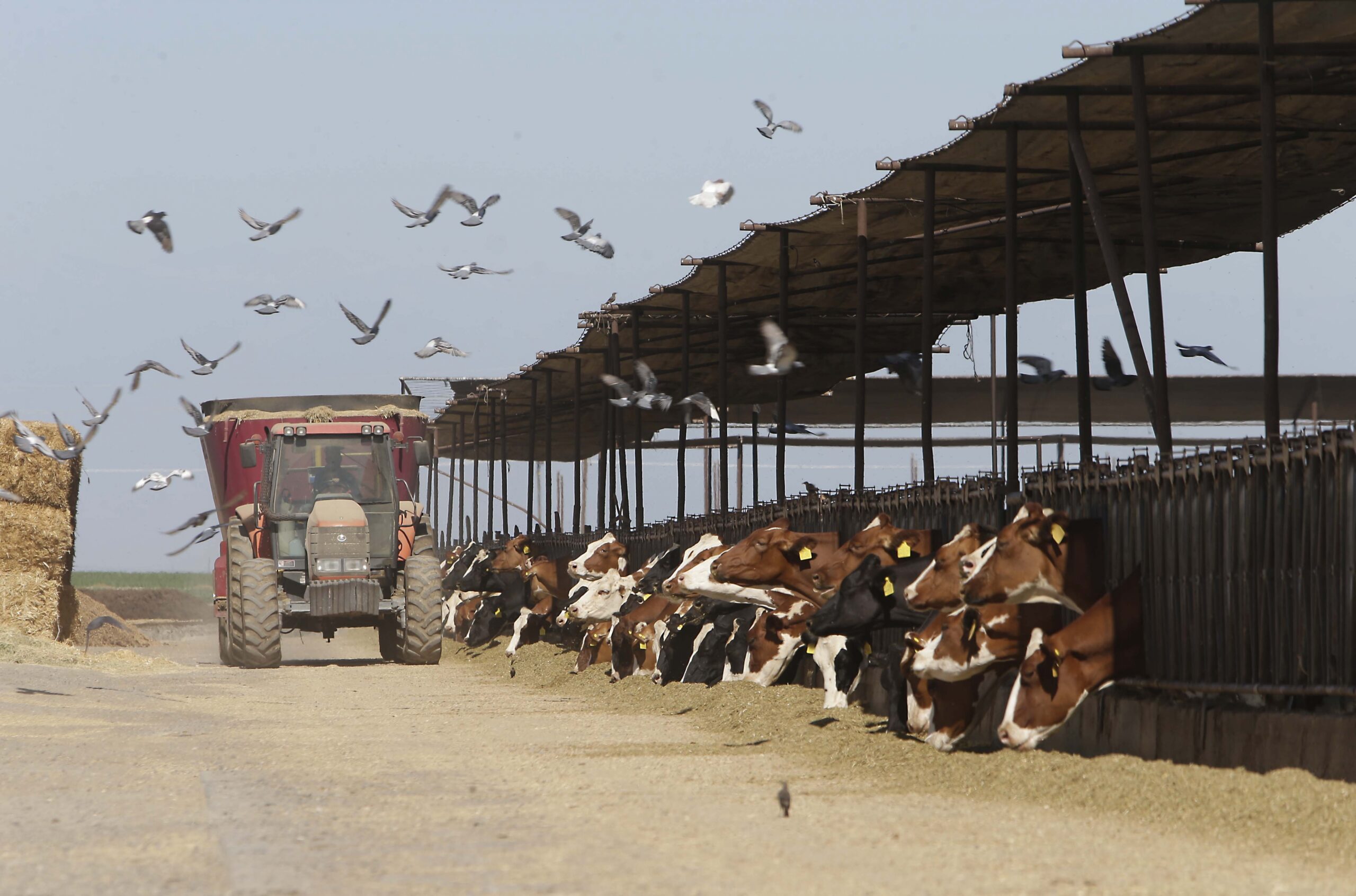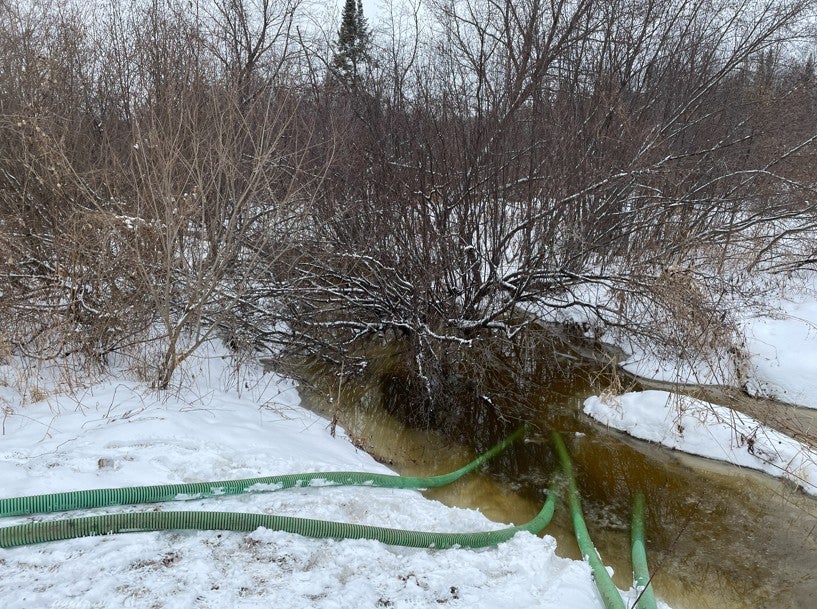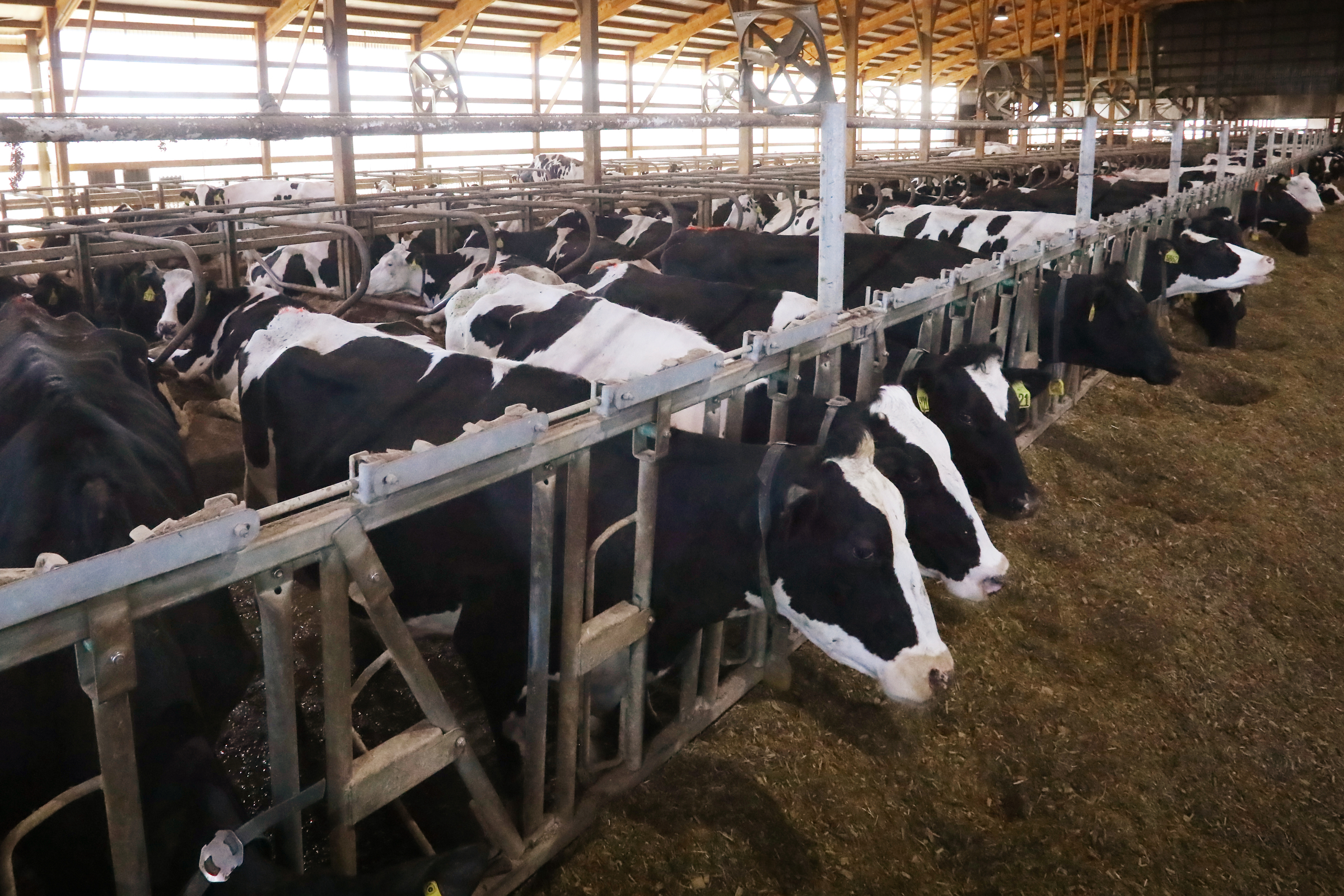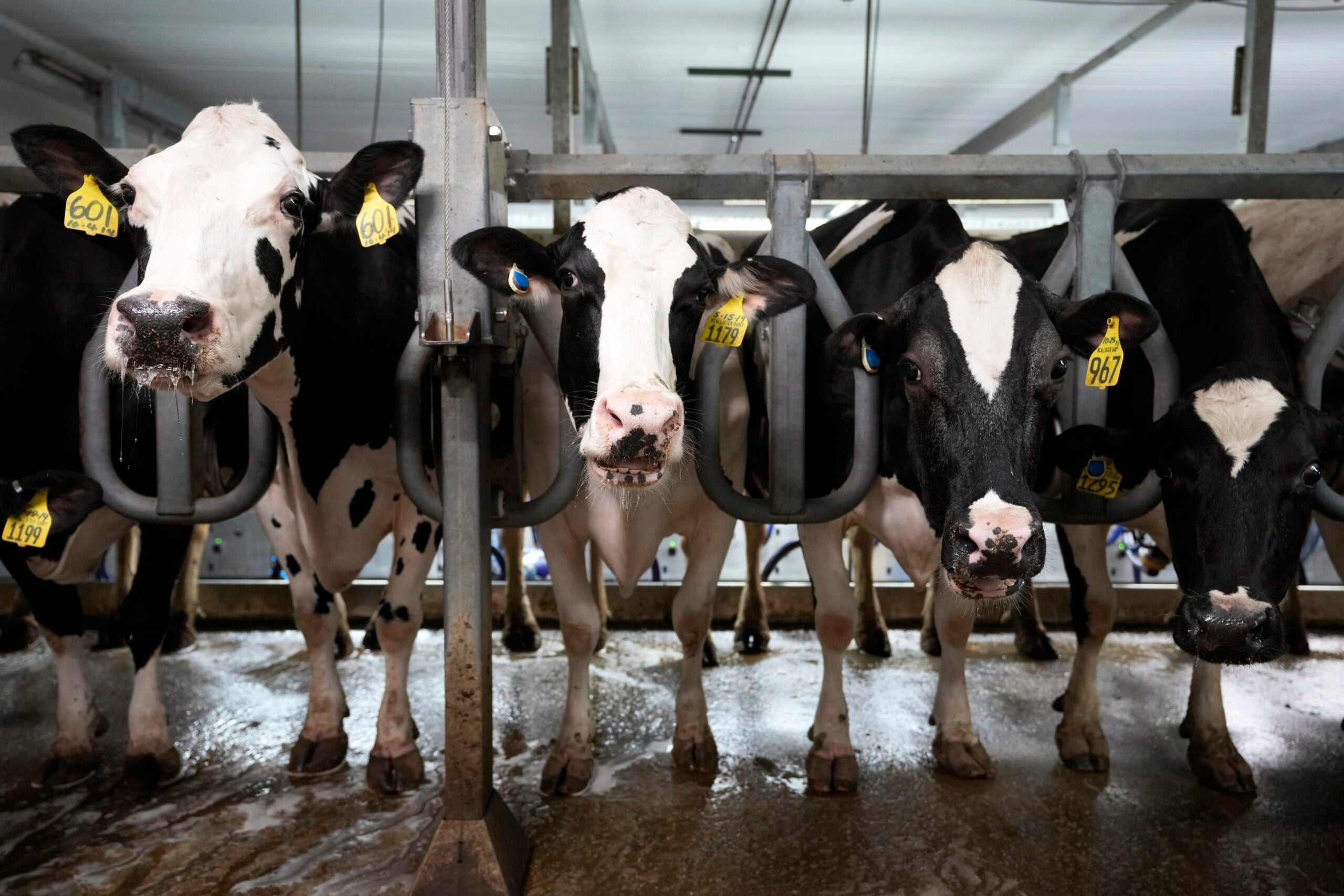A law firm with ties to the state’s largest business lobby is suing the Wisconsin Department of Natural Resources on behalf of dairy groups. The suit targets rules requiring factory farms to obtain permits aimed at keeping manure out of waterways.
In May, the WMC Litigation Center filed the lawsuit in Calumet County Circuit Court on behalf of the Wisconsin Dairy Alliance and Venture Dairy Cooperative. In Wisconsin, large farms known as concentrated animal feeding operations, or CAFOs, are required to get wastewater discharge permits, and must take certain steps to prevent manure from polluting water. Those include farms with 1,000 animal units or more, which is equal to 700 milking cows.
The lawsuit argues DNR rules unlawfully require the state’s 335 CAFOs to obtain those permits. The dairy groups contend agency rules on CAFO discharges and agricultural stormwater runoff aren’t consistent with state and federal law. They want a court to find the regulations can’t be legally enforced.
News with a little more humanity
WPR’s “Wisconsin Today” newsletter keeps you connected to the state you love without feeling overwhelmed. No paywall. No agenda. No corporate filter.
“Federal law does not allow the EPA to do what the DNR is doing in this instance, and the state statutes say that the DNR has to follow federal law in this area,” said Scott Rosenow, executive director of the WMC Litigation Center. “We’re just trying to bring the DNR regulations into compliance with the state statutes and the federal law.”
Federal appeals court rulings in 2005 and 2011 found the Clean Water Act doesn’t allow the Environmental Protection Agency to require CAFOs to get wastewater discharge permits until they actually release waste into waterways. Rosenow argued the DNR can’t exceed those federal requirements under state law. He also maintained an agency rule requiring permits for agricultural stormwater runoff conflicts with state and federal law that exempts such regulation.
A DNR spokesperson said the agency is unable to comment on pending litigation. However, Wisconsin Attorney General Josh Kaul denied the group’s allegations in a response filed Friday. Attorneys for the DNR are asking the court to dismiss the case.
The filing states the groups lacked standing on one or more of their claims. Attorneys for the DNR also said the groups’ claims were barred by sovereign immunity, which means a state can’t be sued without its consent. They argued groups didn’t show the agency’s rules actually interfere with or threaten to interfere with their legal rights.
Tony Wilkin Gibart, executive director of Midwest Environmental Advocates, called the lawsuit a water-quality race to the bottom. He said the legal challenge would severely limit protection of water and public health from the millions of gallons of manure generated by factory farms.
“WMC and the industry groups would have our state basically handcuffed to the lowest common regulations across the country,” Wilkin Gibart said. “That’s not the way that Wisconsin has handled water quality. Our state has always gone further than the bare minimum required by federal law.”
The lawsuit is not the first to challenge DNR’s authority to require permits for CAFOs. In 2017, the Dairy Business Association sued the agency in part over its permit requirements, dropping that claim as part of a settlement with the DNR. Large farms have also challenged the agency’s authority to impose permit conditions on their operations. In 2021, the Wisconsin Supreme Court ruled the DNR had authority to impose permit requirements on large farms to protect water quality.
Kim Bremmer, executive director of Venture Dairy Cooperative, said groups want to change the presumption that CAFOs will cause pollution.
“We’re challenging that requirement — that all CAFOs are presumed to be polluting, so they need this (wastewater discharge) permit,” Bremmer said. “This presumption of guilt in our eyes runs contrary to the very fundamentals of our legal system.”
If the lawsuit were successful, Rosenow said it would remain illegal for farms to discharge waste into waterways without a permit. He added some may choose to retain them to avoid running afoul of the law.
Cindy Leitner, president of the Wisconsin Dairy Alliance, said CAFOs would still need to comply with state regulations that manage manure runoff, restrict spreading in some areas and require nutrient management plans. She said the lawsuit would only change whether large farms choose to get a permit, which she said are costly and burdensome to obtain.
“It doesn’t change the hazardous substances laws and spill laws in Wisconsin,” Leitner said. “If they have a spill, they’re required to take care of it.”
Environmental groups note the DNR’s authority to carry out environmental enforcement under the spills law is currently being challenged in separate cases brought by WMC and business owners.
Sara Walling, water and agriculture program director at Clean Wisconsin, said the state’s CAFO permitting program provides essential oversight of large farms. She said those farms are generating enough manure to warrant permits that regulate their operations.
“If the lawsuit were to move forward successfully, it would really undermine our ability in the state to protect our public drinking water … against the pollutants that are inherent to the manure supply,” Walling said.
Rosenow argued the rules essentially require permits for discharges even if they’re not happening. Even so, environmental groups argue some CAFO owners that are responsible for large manure spills are tied to groups bringing the lawsuit.
One example they cited was a December 2016 spill at Emerald Sky Dairy that released at most 275,000 gallons of manure into wetlands due to a crack in a manure transfer pipe. The farm waited months before reporting the spill to the state, which reached an $80,000 settlement over violations. A report filed with the state shows the CAFO’s owner, Todd Tuls, was listed as a founding member on the board of directors for Venture Dairy Cooperative. Tuls told the Pioneer Press that the facility was neglected when he bought it in early 2016, but ultimately took responsibility for the spill.
The state has also reached settlements totaling more than half a million dollars with several CAFOs this year over violations relating to their wastewater discharge permits, including manure runoff.
Bremmer said their members and farmers would agree that polluters should be held accountable.
“There are bad actors in every industry, but a piece of state-issued paper doesn’t stop that,” Bremmer said. “It only hampers the ability of the overwhelming majority of our farms, who are already in compliance, and they don’t pollute. It hampers their ability to operate.”
Rosenow with the WMC Litigation Center argued the “sky didn’t fall” when the courts struck down similar federal regulations.
But Wilkin Gibart argued Indiana is a state where none of its more than 800 CAFOs have federal permits after rule changes following federal court decisions. A study last year by the Environmental Integrity Project found Indiana ranked first in the nation for the total number of miles of impaired rivers and streams that had been assessed by state regulators, highlighting farm runoff as a major contributor of water pollution.
“That example of Indiana where the 800-plus CAFOs are not permitted under federal Clean Water Act standards paints a picture of where WMC and the factory farming industry groups would take Wisconsin,” Wilkin Gibart said.
Wisconsin Public Radio, © Copyright 2026, Board of Regents of the University of Wisconsin System and Wisconsin Educational Communications Board.






